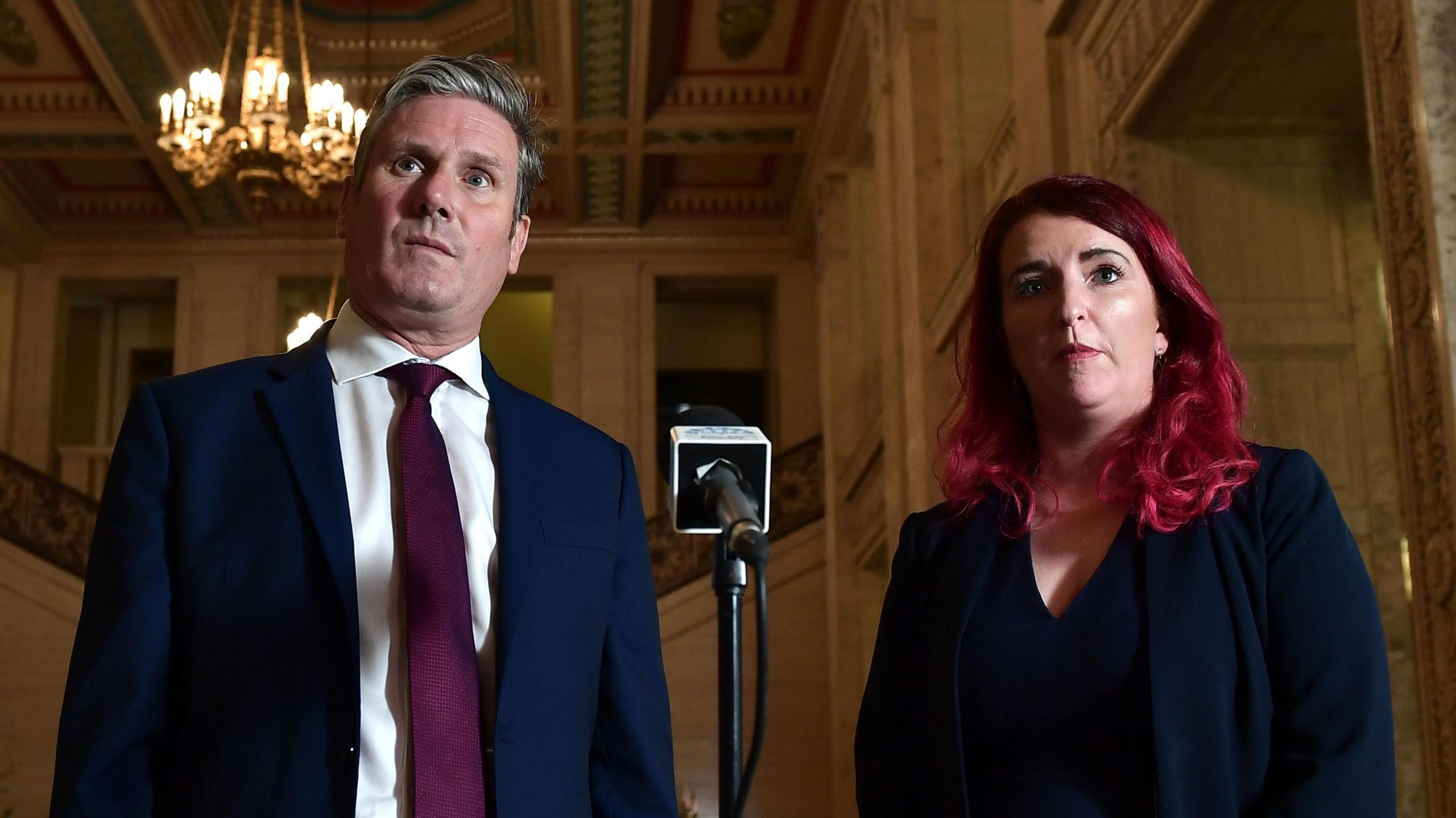Louise Haigh's swift resignation prompts questions

- Published
Politics, with a big majority government, will be much quieter, some said.
Not a bit of it.
Here we are on a Friday, traditionally the sleepiest of Westminster’s weekdays, and MPs confront a potentially generational defining vote on assisted dying while the government confronts its first cabinet resignation.
The first cabinet resignation is a moment for any government and a rite of passage for any prime minister.
There is the first enforced shuffle of personnel at the top table for a start, a headache for Downing Street as they scour the subs bench for replacements, knowing that an appointment of an existing minister itself creates another vacancy.
Louise Haigh was already the first cabinet minister that Sir Keir Starmer publicly rebuked, over remarks about P&O Ferries last month.
Now we have the ritual exchange of letters and the ritual blizzard of further questions.
Minister Louise Haigh quits after fraud offence revealed
- Published29 November 2024
First, those letters, external and in particular the prime minister’s letter to Haigh, which is blunt in its brevity.
Prime ministers often manage to wax lyrical at considerable length in a letter marking a departure, however tortuous or headline-making the whole saga has been.
In this instance, news of the resignation came within 12 hours of the story first breaking, and yet the prime minister’s words appear perfunctory.
The general mood in the Labour Party and in government is one of slight bafflement.
Many were still getting their head around the revelations – which first appeared on Sky News and in The Times on Thursday evening - when they woke up this morning to the news that Haigh was gone.
Plenty believe the sequence of events described in Haigh’s account was too minor to necessitate her departure, in the absence of any further revelations, though some believe she made the right political decision to go quickly rather than allow the issue to drag on for days.
One senior Labour figure described it as a “good resignation” which may allow her to come back at a later date with a clean slate.
We are also told that Haigh had told Sir Keir about the specifics of this case when he first appointed her to the shadow cabinet in 2020.
It's understood she didn't tell the government’s propriety and ethics team about her fraud conviction when she joined the cabinet in July.
They asked her specifically about unspent convictions. Her offence was spent.
This typically means the conviction remains on the offender’s criminal record for life, but they don’t have to reveal it in a job application.
Haigh believed, we're told, that having disclosed what had happened to Sir Keir in opposition, this was sufficient.
It's also understood she was unaware of any investigation by her former employer, Aviva, involving more than one mobile phone, as reported by The Times.
Haigh’s team have not denied this, but have not been drawn on it either.
Aviva is not commenting on the saga.
'Lawbreakers can't be lawmakers'
At the very least, this would have been the subject of even more intense further questions if she was still in the cabinet this morning rather than being on the backbenches.
The prime minister’s awareness of at least some of this saga has itself been seized upon by the Conservatives, who claim it raises questions about his judgement in appointing someone with a criminal conviction.
This would be awkward in any instance, but is particularly so given Sir Keir as leader of the opposition during the Partygate rows insisted lawbreakers can't be lawmakers.
But he then appointed one to his cabinet, albeit someone with a conviction from before they were an MP.
We are told the Conservatives got wind of this story during the general election campaign and hoped to be able to reveal it, but their tip-off referred to a different magistrates court from the one Haigh appeared at, so they could not prove it via court records.
While Haigh spoke in her resignation letter of “our political project,” she and the prime minister were not always politically simpatico.
She was seen as one of the few remaining left-wing ministers in his cabinet.
In the years before the election she was frequently tipped - wrongly - for dismissal at shadow cabinet reshuffles.
Heidi Alexander, previously a junior justice minister, has been named as her successor.
Before returning to the Commons in July, she spent more than three years as London’s deputy mayor for transport under Sadiq Khan.
There is a bigger picture too for Sir Keir.
He is desperate to move on from a sticky perception by many of a bumpy start for his government.
And now this.